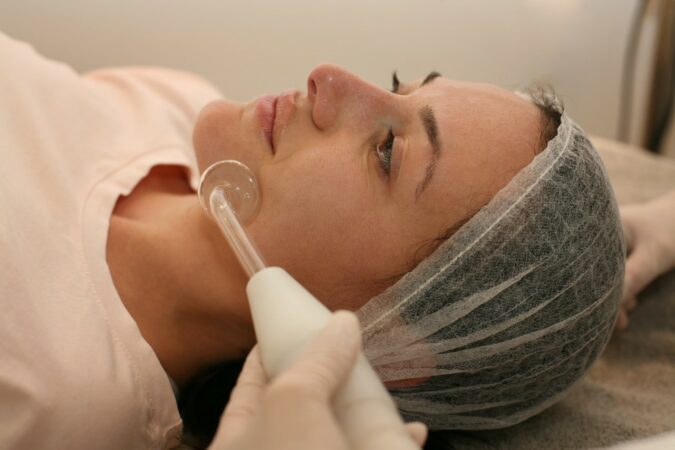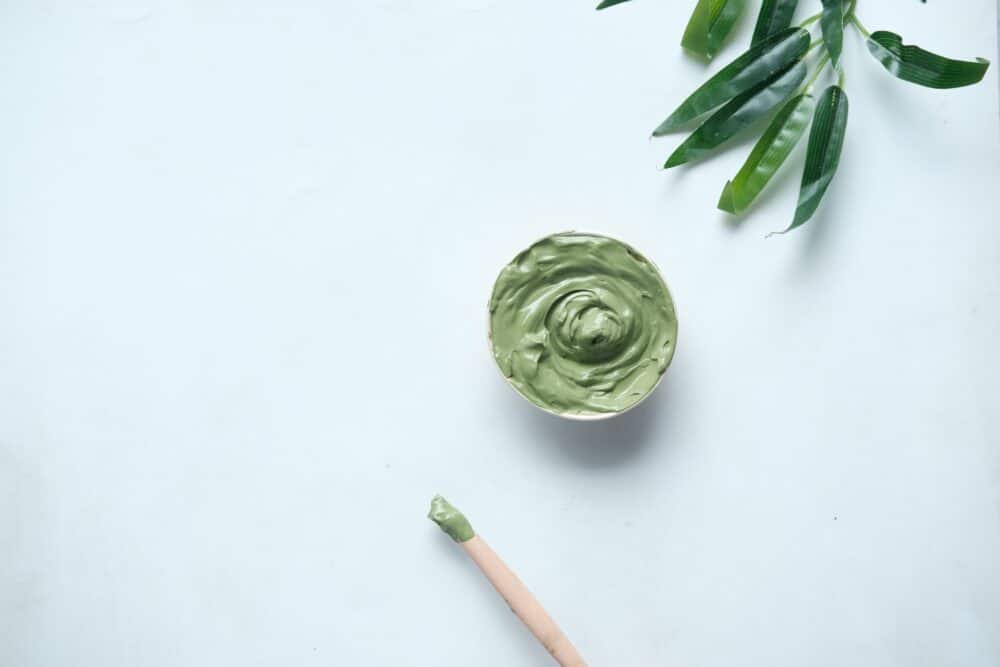
Kick Start Your Freelance Esthetician Career [Guide]

How Much Do Estheticians Make – A Guide to Kick Start Your Freelance Esthetician Career
Knowing your earning potential is essential if you’re considering becoming an esthetician. This guide will explain how much estheticians make and what factors influence their pay. We’ll also provide tips on how to start your freelance esthetic career. So whether you’re just starting or looking to switch careers, read on for everything you need about esthetician salaries!
Learn how to obtain self-employment insurance in your field:
Freelance Disability Insurance | Freelance Ghost Insurance | Freelance Workers Comp Insurance | Freelance Critical Illness Insurance | Freelance E&O Insurance | Freelance Airbnb Host Insurance | Freelance Commercial Auto Insurance | Freelance Commercial Property Insurance | Freelance Utah Home Insurance | Freelance Amazon Flex | Freelance Carpet Cleaning Insurance | Freelance Window Cleaner Insurance | Freelance Pressure Washer Insurance | Freelance Electrician Insurance | Freelance Mechanic Insurance | Freelance Junk Removal Insurance | Freelance Bartender Insurance | Freelance Hair Stylist Insurance | Freelance Barber Insurance | Freelance Taskers Insurance | Freelance Web Designer Insurance | Freelance Doordash Driver Insurance | Freelance Uber Driver Insurance | Freelance Plumber Insurance | Freelance Writer Insurance
An Introduction to Estheticians
You may have heard of estheticians before, but you may not be entirely sure what they do or what their job entails. In short, an esthetician is a professional who is dedicated to improving the appearance and health of their client’s skin. Estheticians are highly trained in skin care and use manual and technological treatments to help their clients achieve their desired results. Keep reading to learn more about what estheticians do and how they can help you.
What Do Estheticians Do?

Estheticians must also be able to identify different types of skin conditions so that they can provide their clients with the best possible care. For example, acne is a prevalent skin condition that can be treated with various methods, including exfoliation, extractions, and medication. On the other hand, states like rosacea and eczema require a more delicate approach as they can be easily irritated. A good esthetician will take the time to understand their client’s individual needs to provide them with the best possible care.
Estheticians play an essential role in helping people achieve clear, healthy skin. If you are considering seeing an esthetician, we recommend booking a consultation so that you can discuss your specific skincare needs and goals. Estheticians can provide you with customized treatments that target your unique concerns. In addition, estheticians can give you tips on adequately taking care of your skin at home to maintain your results in-between visits.
How to Become an Esthetician? Freelance Esthetician Career
1. Research the field:
Before becoming an esthetician, it is essential to research the field to understand what it involves and decide if this is a good fit for you. In addition, learn about the daily duties of an esthetician, as well as their educational requirements and licensing regulations in your state.
2. Complete an Esthetician Program:
Most states require estheticians to complete an accredited program. Many of these programs include in-classroom instruction and hands-on practice under the supervision of a licensed esthetician.
3. Take and Pass Licensing Exams:
Each state requires estheticians to take an exam, usually administered by a state board of cosmetology. In some states, this exam is combined with a practical demonstration to prove your skills as an esthetician.
4. Obtain a Job:
After passing the state boards and receiving your license, you can look for esthetics jobs in salons or spas. In addition, you may be able to find internships or apprenticeships to gain additional experience and develop your skills.
5. Maintain Your License:
Once you have your license, you must renew it regularly and keep up with any required continuing education classes. Most states require estheticians to renew their licenses every two years to maintain their credentials.
6. Market Yourself:
Estheticians need to be able to market themselves to stand out from the competition and gain clients. Establish a small business marketing plan. Develop a website or blog, distribute business cards, and participate in local events to show off your services as an esthetician.
7. Stay Up-to-Date on Trends:
The beauty industry constantly evolves. So estheticians must stay current on the latest trends to remain competitive. Research new techniques and skincare products attend conferences, and network with other professionals in the field. This will help you keep your skills sharp and build client relationships that can lead to referrals.
The Median Salary of an Esthetician – Freelance Esthetician Career
Estheticians are skincare specialists who provide treatments to improve the appearance of the skin. They may work in various settings, including salons, day spas, and medispas. According to the Bureau of Labor Statistics, the median annual salary for an esthetician is $35,070. The lowest 10 percent earn less than $22,860, and the highest 10 percent earn more than $58,490. Estheticians in New York and California typically earn the highest salaries, while those in Mississippi and Arkansas typically earn the lowest. To become an esthetician, one must complete a state-licensed cosmetology or esthetics program.
Some programs may require as little as 600 hours of training, while others require up to 1,600 hours. After completing a program, estheticians must pass a state licensing exam before practicing. In addition, estheticians typically need to complete continuing education courses to maintain their licenses and keep up with new developments in the field. Those who wish to specialize in medical esthetics may require additional training and certification.
The Average Salary of a Medical Esthetician in the US
Spa estheticians typically earn between $11 and $16 per hour, while paramedical estheticians usually make between $15 and $35 per hour. The average salary for an esthetician in the United States is about $29,000 annually. However, salaries vary depending on experience, training, location, and employer. For instance, spa estheticians who work in high-end hotels or resorts may earn significantly more than those who work in small day spas. Similarly, estheticians with extensive training in laser treatments or other specialized services may command higher salaries than those with only basic training. Ultimately, the best way to learn about salary expectations is to speak with experienced estheticians in your area.
Do Medical Estheticians’ Salaries Evolve with Experience?
Medical estheticians provide treatments to improve the appearance of patients’ skin. Services offered by medical estheticians may include facials, chemical peels, and microdermabrasion. To be a medical esthetician, one must complete a postsecondary educational program and obtain a license in the state where one practices.
A medical esthetician’s salary can vary based on experience. Medical estheticians with more experience earn higher wages than those without experience. However, many other factors can impact medical estheticians’ salaries, such as education, location, and the type of employer. Therefore, let’s examine how a medical esthetician’s salary evolves with experience.
The Impact of Experience on Medical Esthetician’s Salaries

According to PayScale.com, entry-level medical estheticians earn an average salary of $29,832 per year. Medical estheticians with 1-4 years of experience earn an average salary of $31,786 per year. Those with 5-9 years of experience earn an average salary of $34,714 per year. And finally, medical estheticians with 10-19 years of experience earn an average salary of $37,645 per year. As you can see, there is a significant salary increase as paramedical estheticians gain more experience in their field.
Besides earning higher salaries, an experienced paramedical esthetician may have access to better job opportunities and advancement potential than those with less experience. With more knowledge and skills under their belts, professional medical estheticians can provide more care to their patients. As a result, they may be able to find positions in larger or more prestigious practices.
Experience Matters for Medical Estheticians’ Salaries
Generally, the more experience you have as a medical esthetician, the higher your salary will be. However, other important factors can affect your earnings potential, such as education level, geographic location, and type of employer. Regardless of your experience level, staying current on industry trends and advancements is essential to provide the best possible care for your patients.
Is a Freelance Esthetician the Right Career for You?
So, you’re thinking about becoming a freelance esthetician. It’s a big decision, and there’s much to consider before taking the plunge.
Pros of a Freelance Esthetician Career
One of the great things about being a freelance esthetician is that you can set up your successful salon. This flexibility can be a huge perk, especially if you have outside commitments or prefer to work odd hours. Moreover, as your boss, you can call the shots regarding vacation and sick days.
Another big plus of freelancing is that you get to choose your clients. This means you can be selective about who you work with and only take on clients you know you’ll enjoy working with. Furthermore, suppose you ever find yourself in a situation where a client is being difficult. In that case, it’s much easier to leave the project when freelancing than if a salon employed you.
Cons of a Freelance Esthetician Career
Of course, some challenges come along with being a freelance esthetician. One of the biggest is that, as your boss, you’re also responsible for finding your clients. This can be tough, especially when you’re just starting. It can also be challenging to keep a consistent stream of work coming in, making budgeting tricky. Additionally, since no one employs you, you don’t have access to health insurance or other benefits that salaried employees typically receive.
Another downside of freelancing is that it can be isolating. When you’re working alone, it’s easy to feel like you’re on an island alone. Many freelancers working from home can compound this isolation, further exacerbating feelings of loneliness and disconnection. Choosing whether or not to become a freelance esthetician is a big decision. There are pros and cons to both sides of the equation. So it’s essential to research before deciding one way or another. We hope this blog post has helped give you some things to consider as you choose!
Types of Freelance Opportunities Available to Estheticians
1. Mobile Esthetician:
A mobile esthetician provides skin care services in clients’ homes or other convenient locations. They may specialize in chemical peels, waxing, microdermabrasion, and treatments. This freelance opportunity is perfect for those who enjoy traveling and want to keep their schedule flexible.
2. Skincare Consultant:
This freelance role involves offering advice and consultation to clients on skin care products, treatments, and home regimens. The focus is not necessarily on selling premium services but helping clients select the best solutions. Often, skin care consultants earn a commission from the products they recommend.
3. Makeup Artist:
A freelance makeup artist provides a range of services, from doing people’s makeup for special occasions or photo shoots to teaching how to apply makeup correctly and finding the best colors for one’s skin tone. Freelance makeup artists can work for salons, spas, or independently.
4. Esthetician Educator:
An esthetician educator supports and educates those interested in pursuing an esthetic career by teaching courses and workshops related to skin care treatments, hygiene practices, and products. They may also provide resources and assistance to new estheticians.
5. Spa Director:
A spa director oversees the operations of a spa, including scheduling, customer service, and marketing. They are also responsible for hiring, training, and supervising estheticians and other staff members and developing new treatments or services. This freelance role may require more specialized experience working with spas or salons.
6. Product Specialist:
A product specialist works with skincare companies to create and distribute products that meet consumer needs. They must be familiar with various ingredients and know about the latest trends in the skin care industry. This type of freelance position often requires research, product testing, and developing sales strategies for clients.
7. Event Esthetician:
An event esthetician provides skin care services to guests at events, such as weddings or corporate functions. They often work with a team of stylists and other beauty professionals to ensure everyone looks their best during the event. This type of role requires excellent customer service skills and an understanding of how to serve all kinds of clients.
These are just some of the freelance opportunities available to estheticians. With the right skills and experience, it’s a career in any of these roles. The key is researching and developing your skills to stand out from other freelancers and make a lasting impression on your clients.
How Much Does a Freelance Esthetician Make? Freelance Esthetician Career
If you’re considering becoming a freelance esthetician, you might wonder how much money you can make. After all, as an independent contractor, you’ll be responsible for finding your clients and setting your rates. So, how much can you expect to earn?
Here’s a quick rundown of some of the factors that will affect your earnings as a freelance esthetician:
- The number of clients you have
- The services you offer
- The prices you charge
- The city you live in
- The cost of living in your city
- The competition in your area
As you can see, many variables will affect how much money you can make as a freelance esthetician. Let’s look at average prices for standard esthetician services to give you an idea of what you could earn.
Average Prices for Common Esthetician Services
Below, we’ve compiled a list of average prices for some of the most common esthetician services. But, of course, these prices are just averages. So remember that they may be higher or lower depending on your city and the competition in your area.
- Facials: $75-$200
- Waxing: $20-$50 per session
- Microdermabrasion: $100-$200 per session
- Chemical peels: $100-$300 per session
Note that these are just averages and that your earnings will depend on many factors, including the city you live in, the competition in your area, and the prices you charge. For example, if you live in New York City, where the cost of living is high, and the competition is fierce, you’ll likely need to charge on the higher end of the spectrum to make a decent living. On the other hand, if you live in a smaller town with less competition, you could get away with charging less for your services.
As a freelance esthetician, how much money you make will depend on various factors, including the number of clients you have, the services you offer, and the prices you charge. That being said, here are some average prices for standard esthetician services to give you an idea of what you could potentially earn: facials ($75-$200), waxing ($20-$50 per session), microdermabrasion ($100-$200 per session), and chemical peels ($100-$300 per session). Remember that these are just averages and that your earnings will ultimately depend on factors such as where you live and the level of competition in your area.
Benefits of Becoming an Esthetician – Freelance Esthetician Career
1. You can make a high income:
Estheticians typically make an attractive salary that considers their educational background and skill level. Plus, depending on the location of your practice, you can charge more for services due to higher living expenses in certain areas.
2. You have flexible hours:
With an esthetician career, you can set your hours and work when convenient. This could be a great fit if you balance other commitments such as parenting or school.
3. You can help people feel beautiful:
Every day, estheticians help clients look and feel their best. The sense of fulfillment that comes from helping others is a great benefit to an esthetician career.
4. You can specialize:
The esthetics industry has many specialty areas, such as medical and spa treatments. As you gain experience in your chosen field, you can become an expert in that area and offer more specialized services.
5. You’ll stay current:
As technology and treatments evolve, you’ll stay up-to-date on the latest developments and trends. This will help you provide quality services to your clients and keep them returning for more.
6. You can learn new skills:
Estheticians are constantly learning new skills to provide more services for their clients. This could include new treatments, working with different skin types and conditions, or using advanced technology.
7. You can build relationships:
Estheticians often develop strong bonds with their clients due to the intimate nature of their services. These relationships can last for years, giving you a sense of loyalty from your loyal customers.
8. You can work independently:
As an esthetician, you can be your boss and set up your business however you prefer. This could include setting your rates, creating a schedule that works for you, and marketing yourself as needed.
9. You can open multiple locations:
The beauty industry is constantly expanding. So you have the potential to open multiple locations and grow your business. This could be a great way to increase your income and gain more clients.
10. You can work in many places:
Estheticians can work in spas, salons, medical offices, resorts, cruise ships, and more! This means you can travel, meet new people, and experience different cultures while living well.
These are just some of the great benefits of becoming an esthetician. With this career, you can make a high income, set your hours, help others feel beautiful, and explore various locations while doing what you love!
Common Challenges Faced by Freelance Esthetician Career

1. Maintaining a steady stream of clients
One of the biggest challenges for freelance estheticians is securing a steady stream of clients. This can be not easy because you don’t have the built-in clientele that comes with working in a salon or spa. To overcome this challenge, it’s essential to market yourself effectively and always be hustling to find new clients. Networking, online marketing, and word-of-mouth are all great ways to get your name out there and attract new business.
2. Dealing with cancellations and no-shows
Another common challenge faced by freelance estheticians is dealing with cancellations and no-shows. When you work in a salon or spa, someone else can fill in if a client cancels at the last minute. But when you’re working on your own, a cancellation can put a dent in your schedule—and your income. The best way to deal with this challenge is to have a strict cancellation policy and require that clients give you plenty of notice if they need to cancel or reschedule an appointment.
3. Managing your finances
When you’re self-employed, managing your finances can be tricky. You must proactively track your income and expenses, set aside money to pay self-employment taxes and create a budget for yourself. Fortunately, there are lots of great resources out there to help you with financial management as a freelance esthetician. You can find helpful blog posts, templates, and even apps for small business owners and freelancers.
4. Staying organized
Another common challenge for freelance estheticians is staying organized—especially when multiple clients are booked back-to-back throughout the day. Creating a system for tracking appointments, contact information, payments, etc., will help you stay on top and avoid double-booking yourself or forgetting about an appointment. There are lots of great scheduling apps out there that can help you stay organized and on track.
5. Working long hours
Freelance estheticians often work long hours because they’re not limited by salon hours or appointments like they would be if they worked in a traditional setting. While having the flexibility to set your hours can be great, it can also lead to burnout if you’re not careful. To avoid burning out, set boundaries for yourself and ensure you take time off when needed—even if that means saying no to a client or two occasionally.
Wrapping Up: Freelance Esthetician Career
Estheticians play an essential role in the beauty industry. However, if you’re considering becoming an esthetician, you should know a few things first. Freelance estheticians can have many opportunities available, but some challenges come with being your boss. With the proper preparation and knowledge, however, you can be successful in this career! For more information on freelance jobs in the beauty industry, check out our other blogs.





